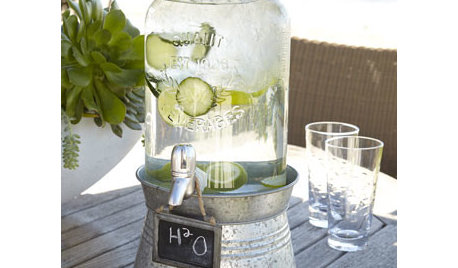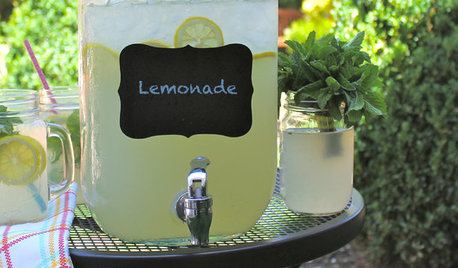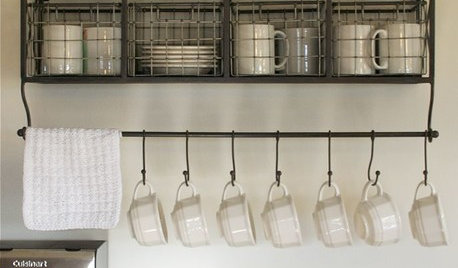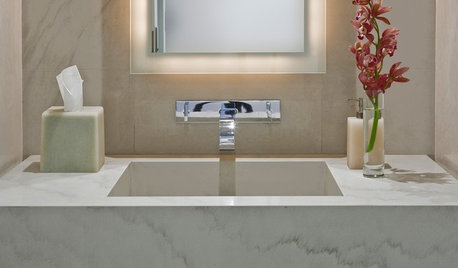Aquasana best for drinking water?
stirfrygrow
18 years ago
Featured Answer
Sort by:Oldest
Comments (22)
speedbump
18 years agolast modified: 9 years agostirfrygrow
18 years agolast modified: 9 years agoRelated Professionals
Miller Place Plumbers · Springdale Handyman · Livingston Handyman · Wood River Kitchen & Bathroom Remodelers · Buffalo Grove Kitchen & Bathroom Remodelers · Kuna Kitchen & Bathroom Remodelers · League City Kitchen & Bathroom Remodelers · Lisle Kitchen & Bathroom Remodelers · Martha Lake Kitchen & Bathroom Remodelers · Port Angeles Kitchen & Bathroom Remodelers · Pueblo Kitchen & Bathroom Remodelers · Sioux Falls Kitchen & Bathroom Remodelers · Superior Kitchen & Bathroom Remodelers · Winchester Kitchen & Bathroom Remodelers · Westminster Kitchen & Bathroom Remodelersandy_c
18 years agolast modified: 9 years agostirfrygrow
18 years agolast modified: 9 years agoandy_c
18 years agolast modified: 9 years agogelfey_yahoo_com
17 years agolast modified: 9 years agoandy_c
17 years agolast modified: 9 years agoandy_c
16 years agolast modified: 9 years agoUser
16 years agolast modified: 9 years agoUser
16 years agolast modified: 9 years agoaquasana
16 years agolast modified: 9 years agobusboy
16 years agolast modified: 9 years agorwng
16 years agolast modified: 9 years agokateskouros
15 years agolast modified: 9 years agoandy_c
15 years agolast modified: 9 years agokateskouros
15 years agolast modified: 9 years agoandy_c
15 years agolast modified: 9 years agobigtimewaterlover
15 years agolast modified: 9 years agoromig11_yahoo_com
12 years agolast modified: 9 years agoelphaba_gw
11 years agolast modified: 9 years agoelphaba_gw
11 years agolast modified: 9 years ago
Related Stories

Guest Picks: We'll Drink to These!
Keep favorite summer drinks cold and at the ready with stylish holders and dispensers that are easy to take outside
Full Story
DECORATING GUIDESIcy Summer Drinks Reimagined as Rooms
Cool, refreshing decor schemes conjure your favorite thirst quenchers, from lemonade to a vanilla shake
Full Story
Houzz Products: Cool Ideas for Summer Drinks
Just the sight of these beverage dispensers, summery linens and bar accoutrements might cool down your guests
Full Story0

KITCHEN DESIGNHot-Drink Stations Hit the Spot
Beverage bars brimming with cocoa, tea, coffee and all the accoutrements make winter entertaining a delight
Full Story
BATHROOM DESIGNGreen and Clean: Sleek Water-Wise Bathroom Fixtures
By choosing ecofriendly faucets, showerheads and even toilets, you can save loads of water and money without sacrificing style
Full Story
HEALTHY HOMEHow to Choose a Home Water Filtering System
Learn which water purification method is best for your house, from pitchers to whole-house setups
Full Story
SAVING WATER11 Ways to Save Water at Home
Whether you live in a drought-stricken area or just want to help preserve a precious resource, here are things you can do to use less water
Full Story
GREEN BUILDINGJust Add Water: Rain Barrel Magic
Take your rainwater storage from practical to beautiful with a new breed of design-friendly rain barrels
Full Story
GARDENING GUIDES9 Ways to Be Water-Wise in the Edible Garden
Consider these tips to get a healthy backyard crop that uses less water
Full Story
LIFEHouzz Call: What Does Summer Look Like at Your Home?
Kids, water, sunshine, backyards, cold drinks — share photos of what summer at home means to you
Full Story





aquasana